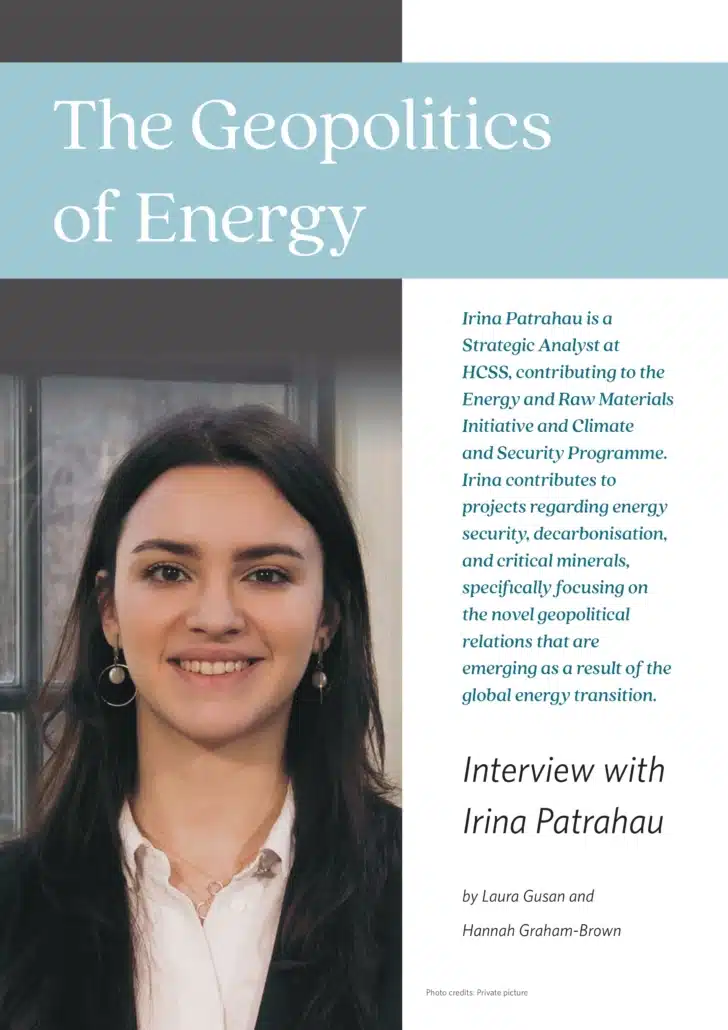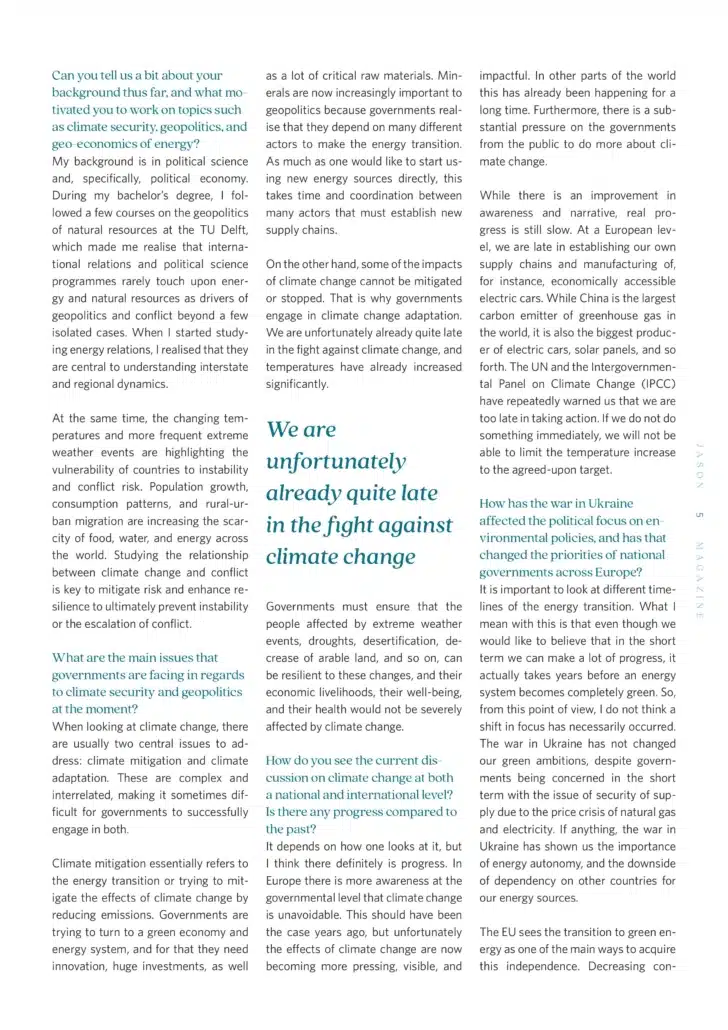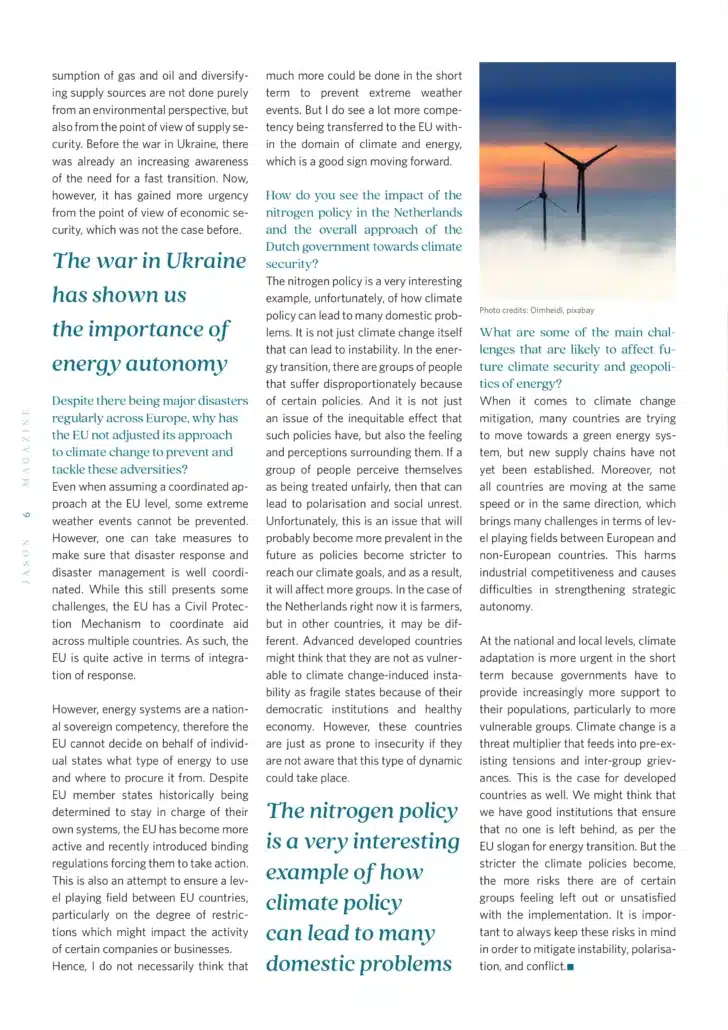In the latest edition of Jason Magazine, Irina Patrahau sat down for an insightful interview with Laura Gusan and Hannah Graham-Brown to discuss the critical topic of Climate Security. Irina Patrahau, a strategic analyst at HCSS, plays a pivotal role in the Energy and Raw Materials Initiative and the Climate and Security Programme.
Can you tell us a bit about your background thus far, and what motivated you to work on topics such as climate security, geopolitics, and geo-economics of energy?
My background is in political science and, specifically, political economy. During my bachelor’s degree, I followed a few courses on the geopolitics of natural resources at the TU Delft, which made me realise that international relations and political science programmes rarely touch upon energy and natural resources as drivers of geopolitics and conflict beyond a few isolated cases. When I started studying energy relations, I realised that they are central to understanding interstate and regional dynamics. At the same time, the changing temperatures and more frequent extreme weather events are highlighting the vulnerability of countries to instability and conflict risk. Population growth, consumption patterns, and rural-urban migration are increasing the scarcity of food, water, and energy across the world. Studying the relationship between climate change and conflict is key to mitigate risk and enhance resilience to ultimately prevent instability or the escalation of conflict.
What are the main issues that governments are facing in regards to climate security and geopolitics at the moment?
When looking at climate change, there are usually two central issues to address: climate mitigation and climate adaptation. These are complex and interrelated, making it sometimes difficult for governments to successfully engage in both. Climate mitigation essentially refers to the energy transition or trying to mitigate the effects of climate change by reducing emissions. Governments are trying to turn to a green economy and energy system, and for that they need innovation, huge investments, as well as a lot of critical raw materials. Minerals are now increasingly important to geopolitics because governments realise that they depend on many different actors to make the energy transition. As much as one would like to start using new energy sources directly, this takes time and coordination between many actors that must establish new supply chains. On the other hand, some of the impacts of climate change cannot be mitigated or stopped. That is why governments engage in climate change adaptation. We are unfortunately already quite late in the fight against climate change, and temperatures have already increased significantly. Governments must ensure that the people affected by extreme weather events, droughts, desertification, decrease of arable land, and so on, can be resilient to these changes, and their economic livelihoods, their well-being, and their health would not be severely affected by climate change.
Read the full text here:
Source: JASON Magazine, Volume 48 (2023), ISSUE 1: Climate Security








